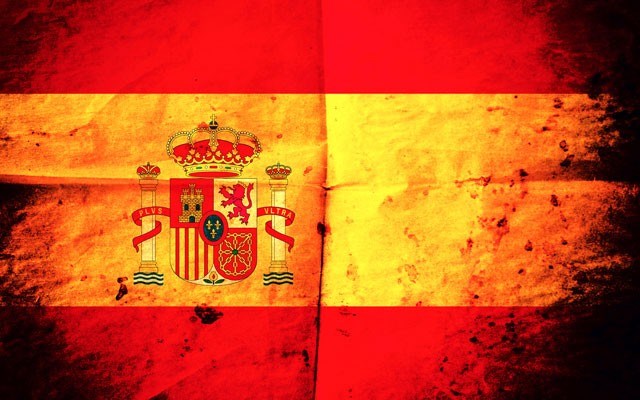The Spanish parliament still has to pass the new citizenship law, but the cabinet has already approved it and Justice Minister Alberto Ruiz-Gallardón is sure there won't be a problem. "In Spain, a clear majority realize we have committed a historical error and have an opportunity to repair it, so I am sure that law will pass with an immense majority in parliament," he said.
Historical apologies are in fashion — ex-South African president F.W. De Klerk apologized for apartheid, ex-British prime minister Tony Blair apologized for the slave trade and the Irish potato famine, and Pope John Paul II apologized for the Crusades, the Inquisition and the Church's historical oppression of women — but Spain isn't just saying sorry for expelling its Jews 522 years ago. It's offering to give their descendants back their citizenship.
1492 was a busy year for Ferdinand and Isabella, joint monarchs of the recently united kingdom of Spain. Christopher Columbus, Isabella's favourite explorer, discovered the New World, Spain's armies concluded the seven-century-long campaign of the Reconquista by destroying the last Muslim kingdom in the peninsula, Granada – and Ferdinand decided to expel all the Jews from Spain.
Spain's Jews were given only four months in 1492 to choose between becoming Christian or leaving their homes forever. Most left, settling in Muslim-ruled North Africa and the Ottoman Empire or in other parts of Christian Europe. They kept their Spanish language in the form of Ladino — Castilian written in the Hebrew script — and became know as Sephardic (i.e. Spanish) Jews.
Ladino is now a dying language, but the Sephardim have retained their distinctive identity and are estimated to number up to a third of the world's 13 million Jews today. Spain's planned new law potentially covers almost all of them, for it is written very broadly.
Applicants for Spanish citizenship need not speak Ladino or even be religious. They need only be able to show a link to Sephardic culture (it could be as little as a Sephardic family name). In most cases, however, the simplest route to Spanish citizenship would be to have a local rabbi certify their Sephardic ancestry, or to get certification of their Sephardic heritage from a recognized Spanish-Jewish community.
Gallardón insists that there are no political motives behind this initiative, and you can actually believe him. His great-grandfather, Spanish ambassador to Romania during the Second World War, saved many Sephardic Jews from the Nazis by giving them Spanish visas, so it's sort of a family tradition. And to make the current offer more inviting, Gallardón has said the applicants can keep their existing citizenship as well.
Spain's justice minister reckons that only about 150,000 Sephardic Jews will take him up on the offer (which will remain open for two years), and he doesn't think that many of them will actually want to move to Spain. But he promises that the government will not be strict in deciding who qualifies as Sephardic — "We are opening the door," he said — and he may be surprised by how many actually apply.
What Gallardón has not taken into account is the fact that Spanish citizenship is, for practical purposes, citizenship in all 28-member countries of the European Union. A Spanish passport-holder can enter Britain, France, Germany, Sweden or any other EU country without a visa, take up residence there, get a job or start a business there. What's not to like about this offer?
Almost half of Israel's Jews are Sephardim, and Israel is a country where second passports are in great demand. The big Sephardic communities in the United States and Mexico will probably not be tempted, but the remaining Sephardic Jews in Muslim countries, including Turkey, certainly will be. Gallardón is thinking mostly about symbolism, which is important — but his offer will also have a real impact on many people's lives.
Portugal, which expelled its Jews shortly after Spain did, is also trying to make amends, though on a less grand scale. Last year it changed the law, and now grants citizenship to Sephardim who can demonstrate a connection to the Portuguese Jewish community. How much further might this example spread? Not very far, alas.
Most of the great expulsions of history have occurred in the context of war, like the compulsory "population exchange" of the Greek minority in Turkey and the Turkish minority in Greece after the First World War, or the expulsion of ten million Germans from their ancestral homes in Eastern Europe at the end of the Second.
Even the expulsion of the Muslim minority from Spain in the course of the 16th century fits that model, although the wars of the Muslim conquest and the Christian re-conquest were long over by then. The real history is a good deal more complex, but the view of the average Spaniard is that the Muslims arrived as conquerors, and when they lost they had to leave.
It's because the Jews of Spain and Portugal were entirely blameless and ruthlessly victimized that there is broad popular support in both these countries for this act of apology and belated recompense. All credit to Spain and Portugal for doing it — but it probably wouldn't be happening even there if it seriously inconvenienced the majority.
Gwynne Dyer in an independent journalist whose articles are published in 45 countries.




